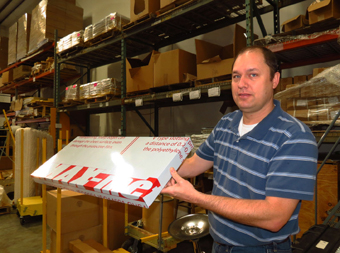The COVID-19 pandemic irrevocably changed the way we work. But what now? What does the workplace look like as we emerge from the pandemic and how can employers support their employees in this reemergence?
We spoke with Elizabeth Gould, coach and author of Feeling Forwards: How to Become the Person Who Has the Life You Want, to get answers to these questions.
In Feeling Forwards, Gould shares techniques and strategies that are accessible and actionable to anyone wanting to realize big dreams or simply transform themselves in everyday situations. What exactly is “feeling forwards?” In a nutshell, it’s adopting the behaviors now that suit the lifestyle you want to enjoy in the future.
Gould shared her thoughts on how to navigate life after the pandemic—especially in the workplace.
Top Stressors
We asked Gould what she believes the top stressors will be as we emerge from the pandemic, and she said they will be the key priorities that emerged during the pandemic itself: The need for connection and certainty.
“The ability to attend larger family events, the knowledge that a planned holiday can be taken, even looking forward to work functions is going to be held in far higher regard than before the pandemic. If there is uncertainty whether these events can occur, it will cause more stress and anxiety than the events ever signified by themselves. Understanding the importance of what were seen as small things are now the biggest, is a major change for normal life post pandemic.”
Employee Reactions
Reactions to our return to some semblance of normal vary from person to person, and an employer should pay close to attention to its own workers.
In her coaching work with employers, Gould says they’ve reported two main reactions from employees.
1. Surprise Resignation
Gould says employers often report a pattern of behavior before a surprise resignation, often from their better performers pre-COVID, which can include a lack of focus towards work and a level of inattention to detail not previously experienced leading up to these unexpected resignations.
“Depending on how personally impacted an employee has been during the pandemic, there can be an element of ‘what is my life all about anyway’ and they can bring that uncertainty and restlessness of spirit back to work,” says Gould. “If someone seems a little off their game, or distracted, it could be a sign of a major shift in life focus, not just struggling to cope with the new normal in daily life or post-pandemic malaise.”
2. Plowing Ahead
“At the other end of the emotional spectrum, an employee can be so determined to return to life as usual, they want to look forwards, no matter what,” says Gould. “They may be carrying the same uncertainties and stresses but are far less likely to admit exactly how they are feeling.”
Ways to Support
Gould says employers should aim to connect and engage with employees at this time.
Connection. This means establishing a personal relationship with someone who works with you. It means getting to know their life and family context.
“While a team member might say, ‘I’m fine,’ that doesn’t reveal that they’re coping with a child that’s fallen behind at school, the loss of an extended family member, a friend on the front line, and so much more,” says Gould. “This is the kind of information that is unlikely to surface during a meeting but emerge slowly during more informal chats with colleagues as well as managers.”
Engagement. Learn how someone feels about coming to work.
“I am not advocating employers should scale back achieving business goals and targets, but the more an employee can feel each day that they contributed to the business and the team around them, the higher their level of engagement will be to the business and for the business,” says Gould.
Navigating a New World
We asked Gould how employees and employers can best deal with the many changes in the post-pandemic world, and she said positive emotions are key.
“Moving out of the pandemic may take longer than any of us would like,” she says. “To move forward, even if it’s a half step at a time, it will be easier if there’s a focus on what is working rather than what isn’t, what can be achieved not what is impossible, how the business could benefit the community as the pandemic is left behind, and celebrating the small but significant differences that can be made by everyone, employer and employee alike.”











